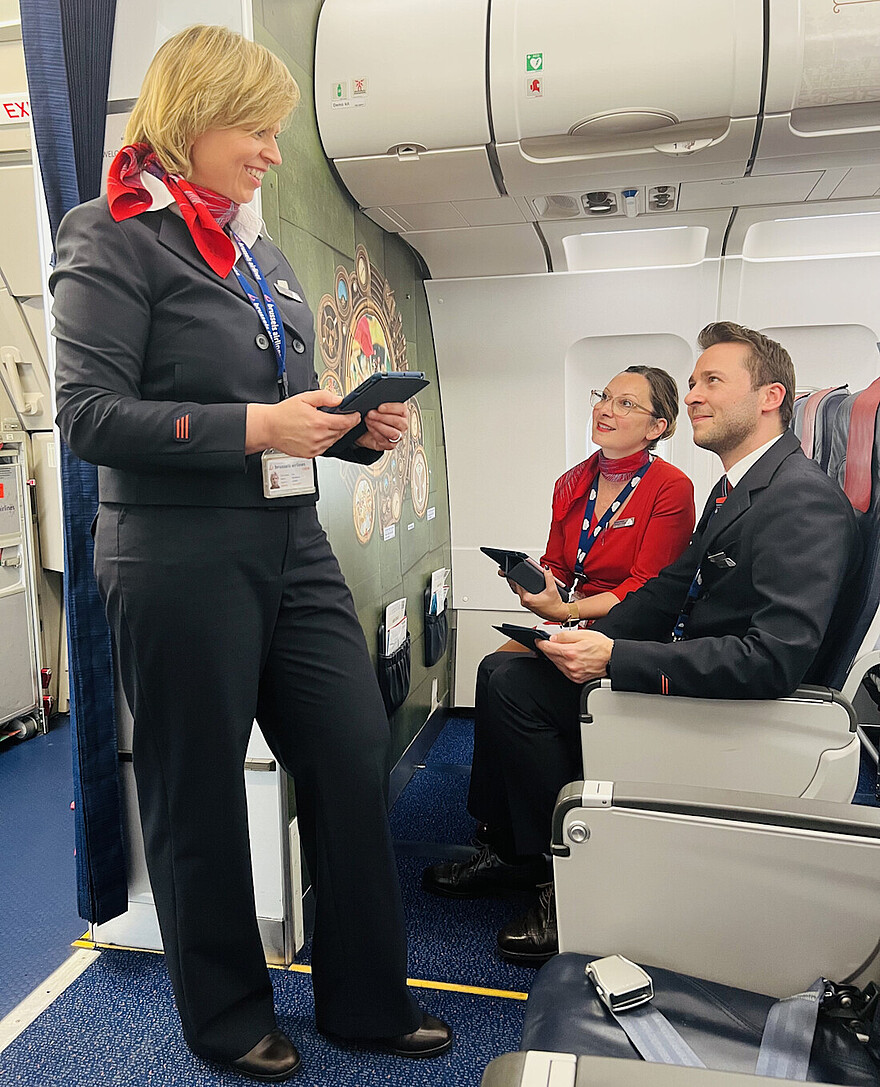Customer expectations in aviation have become more complex in recent years. Dealing with feedback is a central aspect of increasing customer loyalty, dealing with problems promptly and making good use of the airline staff’s own experiences. However, evaluating this mass of information manually is no longer considered an efficient use of time and resources. This is why Brussels Airlines relies on solutions provided by Lufthansa Industry Solutions (LHIND) to streamline the processing of passenger feedback using artificial intelligence (AI).
The Customer
Flying to 71 airports, including destinations in 20 European countries, two North American airports and 15 destinations in Africa, Brussels Airlines is one of Europe’s best-known airlines and is headquartered in the capital of the European Union.
In total, its 38-strong fleet of aircraft carried over 10 million passengers in 2019. The Belgian aviation company’s 3,100 direct employees tend to the needs of so many people and, if indirect jobs are counted as well, as many as 40,000 people benefit from the their international activities.
The company was founded in 2002 by 40 investors who joined forces to ensure the existence of a stable, future-proof airline in the heart of Europe. Lufthansa AG has been involved with Brussels Airlines since 2008, which led to them joining joined the Lufthansa Star Alliance in 2010. The airline has been owned in its entirety by Lufthansa AG since 2017.
- Development and implementation of an AI service
- Operation of all critical components
- Data protection
- Cloud security
- Provider communication
- Support
The Challenge
The airline industry has undergone profound changes in recent years. Those who strive for continued survival in the market need to adapt to current developments and higher customer demands. Passengers have become more price-conscious, but are also placing an ever greater value on issues such as sustainability when they fly. Flexibility is expected, as is constant access to all services. The flight experience should be pleasant, the cabin crew friendly and courteous.
How well Brussels Airlines does in all these categories can be extrapolated from customer feedback. Direct feedback from passengers regarding the flight experience is one of the most important metrics for the airline to evaluate its own standards, those of its customers and also those of the crew on board. How good was the food? How smooth was the flight? Were all the necessary materials for ensuring perfect service accessible on board? Did any technical anomalies occur that pilots need to report back?
This feedback must be collected, processed and passed to the relevant departments quickly. Only in doing so can problems be resolved rapidly, in turn allowing passengers to feel heard and taken seriously. Until now, evaluating this feedback was an expensive task requiring two full-time employees. Customer comments were evaluated individually and manually, meaning it could take as long as six months to process them, by which time most problems have already become obsolete, causing the passengers to change airlines in disillusionment.
The challenges of performing these evaluations manually should be addressed using technology. It is for this reason that LHIND was brought in, whose expertise in artificial intelligence has provided the impetus necessary for making this change.


